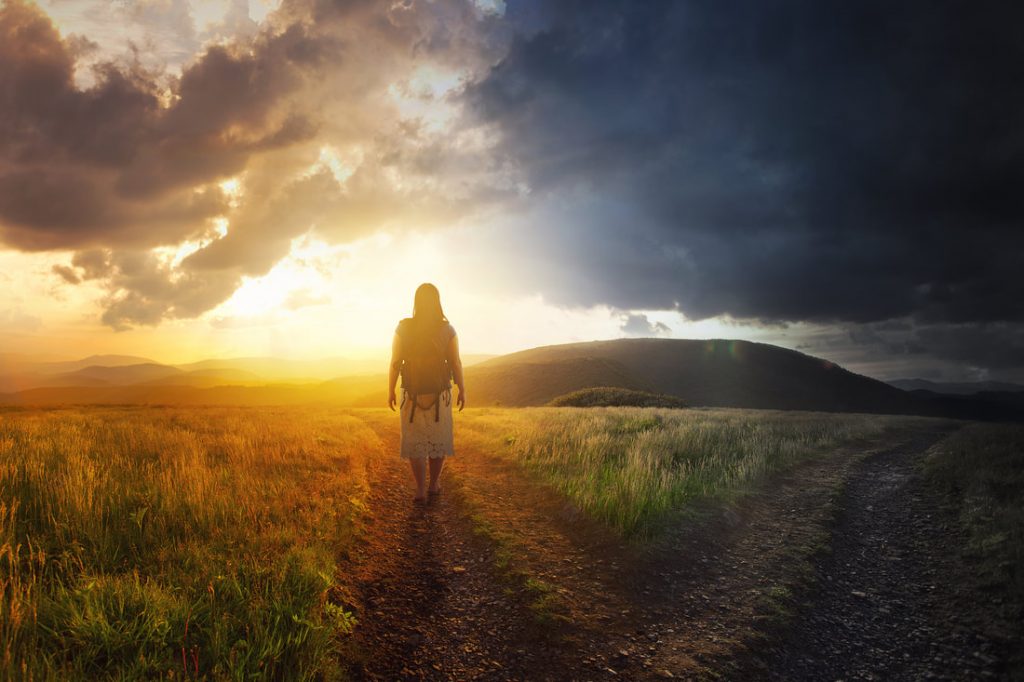
One thing we have learned as a result of COVID is that “uncertainty” may have overtaken “constant change” as the dominant force in society. If you thought the word “change” was scary, brace yourself for a future of uncertainty.
As we move through the current global pandemic, longing for our lives to return to whatever we considered normal, the level of anxiety is palpable. This anxiety is caused by a degree of uncertainty never experienced before. Uncertainty in terms of our jobs and financial future, our health and well-being, our relationships, our education, our celebrations, and whether or not we’ll ever be able to shake hands again. And, if you’re a hugger… not likely. Sorry.
Of course, there will come a day when all those things will slowly creep back to where they once were. But will things ever return to their previous capacity? This is the uncertainty gripping us when we envision our future. This is the source of anxiety and fear of a future we simply cannot see or feel.
The real test comes when we can finally break free from our own fog and realize we need to get on with it, regardless of what “it” may look like. What will be required of us as we navigate our way will be three things: resiliency, adaptability, and, optionality.
Resiliency has become the go-to word when it comes to mental health. While I’m not a fan of buzz words, it does have a valid place in the conversation. However, there are many interpretations and applications of the word. Some feel it’s impossible to simply be resilient if you’ve never faced adversity. Others feel it’s a trait that can be developed.
For me, resiliency has many layers. First, I believe it’s starts with our physical resilience. We have become so unhealthy as a society that we are unable to fight off a cold or flu, let alone something like COVID 19. Many people aren’t giving themselves a chance as they have such a low base level physical health, let alone physical resiliency.
Further to that, we need to understand and acknowledge that one of the bests mechanisms we have to deal with stress and anxiety is through exercise and active living. The connection between our physical health and mental well-being has been well documented. As we continue down this path of undue stress and anxiety caused by uncertainty, it will be our resilience (physical, mental, emotional) that will lead us through.
True resilience is developed through facing our fears, our challenges, the hurt, and the nasty bits of life we typically want to ignore. However, when we muscle through these challenges without acknowledging the pain, the scars, and the hurt, we’re simply “gold-plating grit” as author Brene Brown would say. She adds that “stripping failure of its real emotional consequences is to scrub the concepts of grit and resilience of the very qualities that make them both so important — toughness, doggedness, and perseverance.” This is the pathway to developing true grit and resilience.
If uncertainty is our new reality, then our ability to adapt to changing circumstances, environments, expectations, and just about anything else life can throw at us is going to be paramount to our survival. Adaptability is directly related to evolution. We are evolutionary creatures by nature, however, through time, the blade has become dull when it comes to curiosity and creativity. We’ve become so resistant to change and crave the comfort of sameness, we’ve lost any desire or impetus to adapt, improvise, or overcome.
Adapting to the uncertainties and ambiguities of life will become the norm. Professionally, changing job expectations and duties, working remotely, and labour market fluctuations will all test our ability to adapt. On a personal front, we simply have no idea what education or retirement will look like. Sure, we’ll be able to get together for the traditional family celebrations again someday… but when? And, will everyone share your excitement at reuniting to partake in the holiday spirit?
Daniel Goleman, author and EI guru, spoke of adaptability as an indicator of emotional intelligence and is a “competency that entails having the flexibility to handle change, balance multiple demands, and adapt to new situations with fresh ideas.”
When coupled with physical, mental, and emotional resilience, we posses the capacity and strength to deal with life’s challenges, and meet them head on, moving through them with a sense of confidence and clarity. Moving through challenges is after all, the only way forward.
Which brings us to optionality. Life never has been an either/or proposition. We’ve just viewed it that way. “This” or “that” gives us comfort as it simplifies things. We’ve always had choices and an ability to make decisions based on those choices. However, we need to not just see the options and opportunities that lie in front of us, but to seek them out and create them. This is where true optionality comes into view.
While no one can predict the future, we can create multiple scenarios resulting in multiple futures, thus giving way to multiple options. As Shane Parrish, author and founder of Farnam Street puts it, “The more options we have, the better suited we are to deal with unpredictability and uncertainty. We can stay calm when others panic because we have choices.”
As the dark cloud of uncertainty looming overhead doesn’t look to be passing anytime soon, it’s time to pause and reflect. Simply hoping things return to the way they were is naive at best. We need to develop a new perspective on a new future and embrace ambiguity. And, embrace the idea of developing resilience, being adaptive, and seeking options, all the tools needed to give ourselves a chance and navigate our way through one of the most challenging times in recent history.